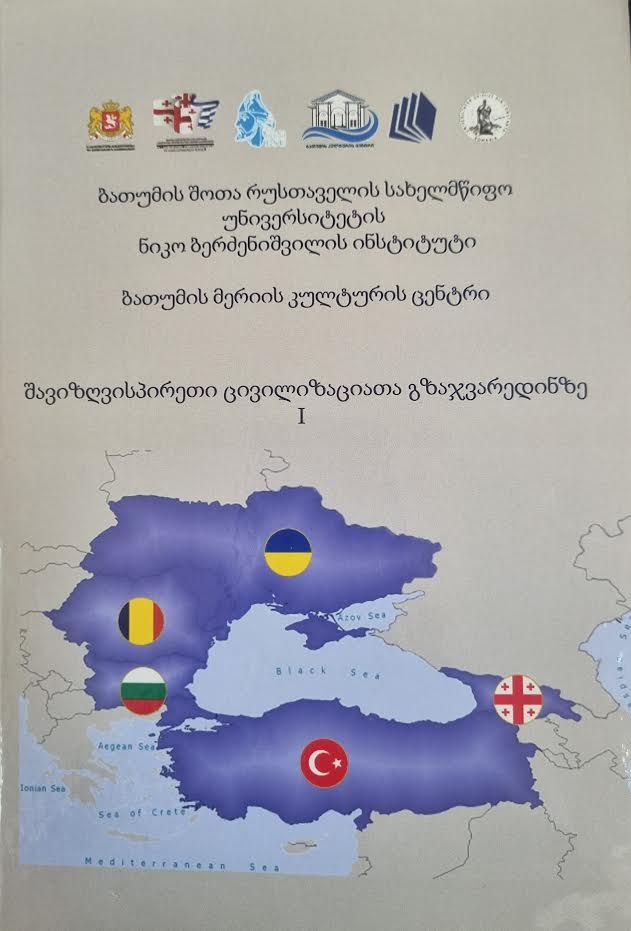The NATO Role in Promotion of Geoeconomic Security at Regional Level – The Black Sea Region Case-Study
DOI:
https://doi.org/10.61671/bsrcc.v2i.8006Keywords:
geoeconomic security, international security, Georgia, “Black Sea Security Dimension”, NATO, RussiaAbstract
Having considered current changes in the system of contemporary international security where geopolitical indicators have shifted in favour to geoeconomic ones, factor of geoeconomic security and geoeconomic phenomenon as such increased steadily. Namely the geoeconomic security became omnipotent for such state as is Georgia which is under occupation from by the Russian Federation and the occupation is hampering process of fully realization of Georgia’s national interests at any level. Mainly due to the fact that Georgia is striving to achieve NATO membership and Russia considers the one as violation of its so-called “vital zone of influence”. The Russo-NATO confrontation area has already become the Black Sea Area. Even the NATO declared the area as geostartegically and geoeconomically vital space and even introduced special jargon “the Black Sea Security Dimension”. One of the aspects of the dimension consisted of geoeconomic security as the NATO seeks to achieve its strategic interests in aegis of the zone not only by political-military means but also political, economic and diplomatic means.
References
ბახტაძე ლელა, ვეშაპიძე შოთა, ზუბიაშვილი თამაზ, ,,გეოეკონომიკა“, ივანე ჯავახიშვილის სახელობიც თბილისის სახელმწიფო უნივერსიტეტი 2021. https://digitallibrary.tsu.ge/book/2021/sep/readers/bakhtadze-geoekonomika-reader.pdf
გვენეტაძე ნათია, ,, შავი ზღვის რეგიონის უსაფრთხოება და ნატო“, საინფორმაციო ცენტრი ნატოსა და ევროკავშირის შესახებ, თბილისი 2024. https://infocenter.gov.ge/blog/shavi-zghvis-regionis-usafrtkhoeba-da-nato/
მარგველაშვილი ზაალ, ,,უსაფრთხოება შავი ზღვის რეგიონში“, ლევან მიქელაძის სახელობის დიპლომატიური სასწავლო და კვლევითი ინსტიტუტი საქართველოს საგარეო საქმეთა სამინისტრო, 2019. https://di.gov.ge/wp-content/uploads/2021/02/security_black_sea_ge.pdf
“Renewable Power Pathways”, Special Bulletin, Department of Energy, Washington, 2000;
Akhvlediani, Tamar "Energy-Geopolitics of Syrian Regional War: Global and Regional Aspects", MA Thesis, IBSU, Tbilisi, 2018;
Aljazeera”Why is the Strait of Hormuz so strategically important? Explaining the economic and geopolitical significance of the key waterway out of the Gulf”, 2019.;
Buzan, Barry “People State and Fear” , Pearson Education, London, 1991;
HAYNES, SUYIN. 2019 JULY 23, . "The Strait of Hormuz Is at the Center of Iran Tensions Again. Here's How the Narrow Waterway Gained Wide Importance." Times. https://www.oxfordlearnersdictionaries.com/definition/english/soft-power. n.d.
Hooker Richard, ,,A security strategy for the Black Sea“, Atlantic Council Task Force on Black Sea Security, 2023. https://www.atlanticcouncil.org/in-depth-research-reports/report/a-security-strategy-for-the-black-sea/
Horrell Steven, Kuz Ivanna, ,,NATO — Back in the Black (Sea)?”, Center for European Policy Analysis, 2022. https://cepa.org/article/nato-back-in-the-black-sea/
Isidore, Chris. “Why the Strait of Hormuz is so important”, CNN Business, Atlanta, 2019.
Kettell, Steven. n.d. britannica . https://www.britannica.com/topic/oil-crisis.
Lack, Simon. n.d. "America's Path To Energy Independence: The Shale Revolution." Forbes, 2021.
Lahabi, Omid. "Strait of Hormuz: Why does Iran threaten to close it?" euronews. 2019.
Lasicova, J.”bezpecnost-bezpecnosta agen da sucasnosti”. banka bystrica univerzita mateja bela2006..
NATIONAL GEOGRAPHIC. Feb. 21, 2013.. https://www.nationalgeographic.org/encyclopedia/non-renewable-energy/.
National Geographic. JANUARY 30, 2019.. https://www.nationalgeographic.com/environment/energy/reference/renewable-energy/.
Renewable Power Pathways. national research council. 2000.
Robbins, James S. "Closing Strait Of Hormuz Is Fraught With Dangers For Iran." radio farda. April 29, 2019.
The Environmental Impact Assessment Regulations . (Scotland). 1999.
Wethe, David. "The Shale Revolution." bloomberg. 2019.
Downloads
Published
How to Cite
Issue
Section
License
Copyright (c) 2023 BLACK SEA REGION AT THE CROSSROADS OF CIVILIZATIONS

This work is licensed under a Creative Commons Attribution-NonCommercial-ShareAlike 4.0 International License.














